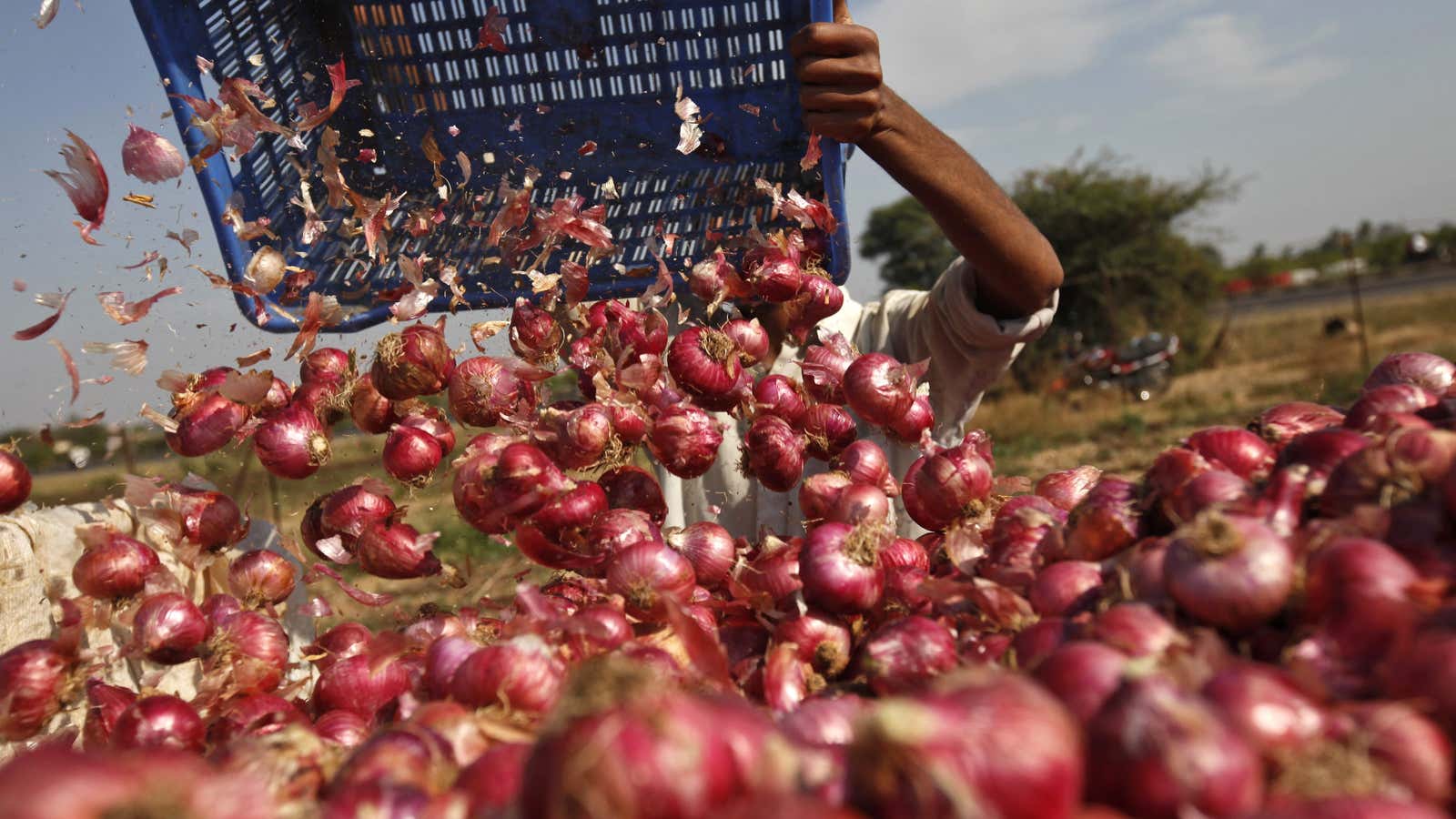India’s inflation horror this year has driven its government to seek help from even students and startups.
The Narendra Modi administration launched a challenge yesterday (July 10) for students, startups, and companies to develop technologies that can reduce losses from rotting onions in storage.
The student category here includes undergraduate, post-graduate students, and PhD, besides research scholars and non-teaching staff.
The problem of food inflation
Food prices in India have been on the boil this year due to supply constraints.
India’s food inflation is expected to rise up to 9% in the second half of 2022, according to a report by Nomura. “Locally, the onset of the summer heat wave has contributed to the rise in food prices,” the finance ministry said in its latest economic report.
In June, however, overall retail inflation steadied, but remains well above the Reserve Bank of India’s tolerance limit of 6% for the sixth consecutive month, a Reuters poll suggested.
Onion, a staple in most Indian household kitchens, has seen abrupt spikes in prices over the past many years. Often, this has caused serious political damage to governments, both state and the union.
The government, for the last few years, has been maintaining a buffer stock of onions to tackle any rise in prices. Retail prices peaked at 60 rupees per kilogram this year. In 2019, they hit a record Rs 82. Yet, a lack of adequate storage facilities leads to a wastage of up to 500,000 tonnes of onions every year.
The rise of agritech companies
Onions are grown in various parts of India throughout the year except in July, August, and September. Traditionally, they are stored in oxygenated warehouses, where up to 40% of the produce is lost due to poor facilities.
Agritech companies like Godaam Innovations, Agrostar, DeHaat, CropIn, and Fasal are already working on cost-effective and user-friendly storage solutions that could lead to reduced food wastage.
Godaam, for instance, has leveraged the internet of things technology to find solutions to this problem and used devices that would inform farmers via text messages about rot setting in.
“With Godaam, we aim to convert traditional warehouses into smart warehouses by installing sensors that can track micro climatic changes and help farmers identify any stock spoilage at an early stage,” Kalyani Shinde, is founder told The Better India in 2020.
